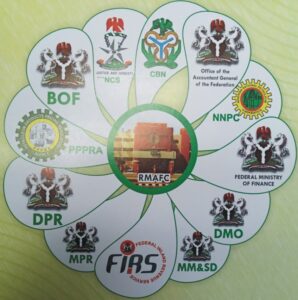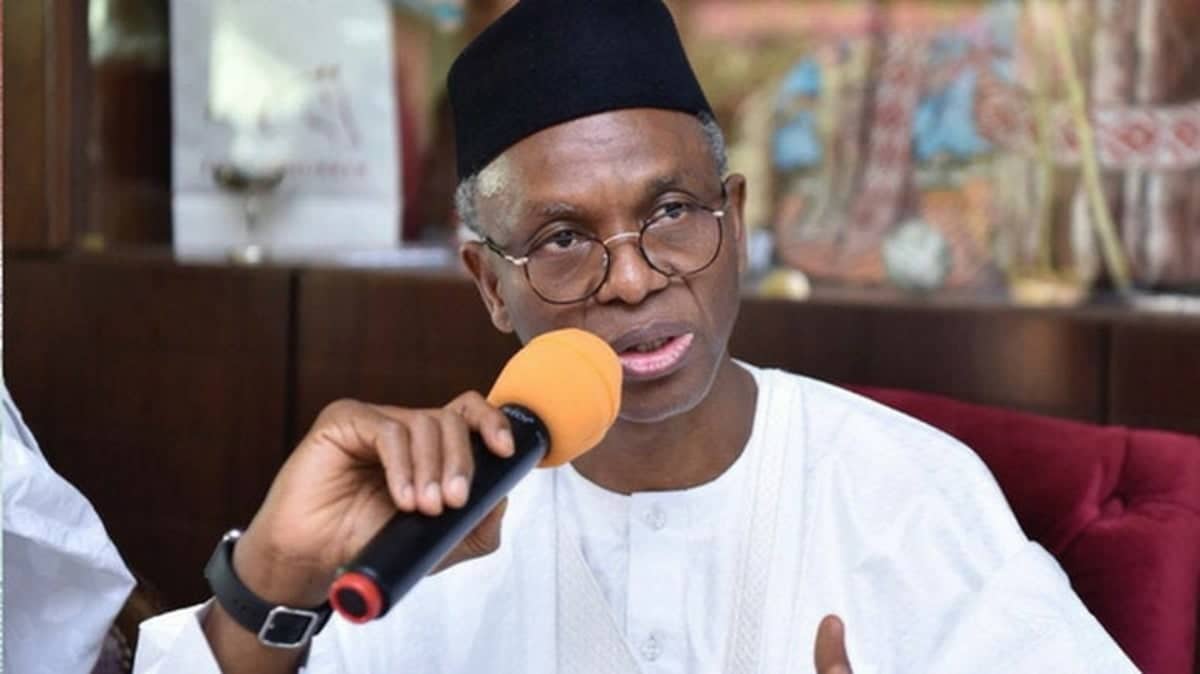RMAFC Proposes 3.3% Cut In Federal Goverment Allocation
States and Councils will earn more from the Consolidated Revenue Fund should the National Assembly ratify the proposed sharing formula from the federation account.
The Federal Government will lose 3.3 per cent so as to shore up the accrual to the states and councils.
It is the first time in 30 years that the revenue sharing formula is close to adjustment. The subsisting formula was enacted in 1992.
The Revenue Allocation Mobilisation Fiscal Commission (RAMFC) submitted a sharing proposal to President Muhammadu Buhari at the Presidential Villa yesterday.
The President promised to send the proposal to the National Assembly for enactment.
In the proposal, the RMAFC recommended that states’ monthly allocation be increased by 3.07 per cent from the current 26.72 per cent. The Councils will have their 20.60 per cent share increased by 0.44 per cent.
The 3.07 per cent and 0.44 per cent will be sliced off Federal Government’s 52.68 per cent.
In the proposal Federal Government will take 45.17 per cent, states will share 29.79 per cent and the 774 Local Governments will have 21.05 per cent.
RMAFC Chairman Elias Mbam presented the report.
Buhari, according to a statement by his Special Adviser on Media and Publicity, Femi Adesina, said the report would be subjected to internal review and approval processes while awaiting finalisation of the efforts by the National Assembly.
The statement reads: “Ordinarily, I would have gone ahead to table this report before the National Assembly as a Bill for enactment.
“However, since the review of the vertical revenue allocation formula is a function of the roles and responsibilities of the different tiers of government, I will await the final outcome of the constitutional review process, especially as some of the proposed amendments would have a bearing on the recommendations contained herein.”
The President listed some of the proposed amendments in the report as follows:
• establishing local government as a tier of government and the associated abrogation of the state/local government account;
• moving airports; fingerprints, identification and criminal records from the exclusive legislative list to the concurrent legislative list;
• empowering the RMAFC to enforce compliance with remittance of accruals into and disbursement of revenue from the Federation Account; and
• streamlining the procedure for reviewing the revenue allocation formula.
The President commended the RMAFC for a job well done, pledging his commitment and support to the members in carrying out their constitutional mandates.
Buhari also thanked Nigerians, especially the state and local governments for making their inputs through the broad stakeholder engagement processes that produced the report.
He said: “I am aware that the present revenue allocation formula has not been reviewed since the last exercise carried out in 1992.
“Considering the changing dynamics of our political economy, such as Privatisation, Deregulation, funding arrangement of Primary Education, Primary Health Care and the growing clamour for decentralisation among others; it is necessary that we take another look at our revenue sharing formula, especially the vertical aspects that relate to the tiers of government.
“This becomes more compelling as we need to reduce our infrastructural deficit, make more resources available for tackling insecurity, confront climate change and its associated global warming and make life more meaningful for our rapid growing population”, he said.
He stated that as an advocate for grassroots development, he had always remained committed to ensuring that all tiers of government were treated fairly, equally and justly in the sharing of national resources.
“I want to let you all know that I have keenly followed most of the discussions held in the geopolitical consultative process and one thing that struck me clearly was the agreement that a review of our vertical revenue formula cannot and should not be an emotional or sentimental discussion and it cannot be done arbitrarily.
“All over the world, revenue and resource allocation have always been a function of the level of responsibilities attached to the different components or tiers of government.
“I am, therefore, happy to note that the discussions were held along these lines and rested squarely on roles and responsibilities as spelt out in the 1999 Constitution (as amended).
“However, I also note that in reaching the final decisions at most of these engagements, not much emphasis was placed on the fact that the Second Schedule of the Nigerian constitution contains Sixty Eight (68) items on the Exclusive Legislative List and the remaining Thirty (30) items on the Concurrent List requiring both the Federal and State Government to address”, he said.
Buhari, therefore, declared that for the nation to have a lasting review of the present revenue allocation formula, there must first be an agreement on the responsibilities to be carried out by all the tiers of government.
In particular, he noted that the proposal seeks a reduction in the current Federal Government allocation and on the other hand an increase of 3.07 per cent and .44 per cent for the states and councils.
He added that with regards to the Special Funds, the report by the RMAFC proposed an increase of. two per cent for the Federal Capital Territory (FCT) and a decrease of .38 per cent for the Development of Natural Resources.
The President recounted that the Federal Government also made its input into the process of reviewing the vertical revenue allocation formula based on existing constitutional provisions for roles and responsibilities for the different tiers of government.
“We must note the increasing visibility in Sub-national level responsibilities due to weaknesses at that level, for example, primary health care; basic primary education; levels of insecurity, and; Increased remittances to states and local governments through the Value Added Tax sharing formula, where the Federal Government has only 15 per cent and the states and local governments share 50 per cent and 35 per cent respectively”, he said.
Secretary to the Government of the Federation, Boss Mustapha, said the RMAFC followed due process in undertaking the exercise.
Giving a synopsis of the report, Mustapha said it was in four volumes, including a summary in the main report.
Mbam said the philosophy behind the proposed review was guided “by the need for distributive justice, equity and fairness as enshrined in relevant sections of the 1999 Constitution (as amended)”.
He added that the principles took into cognizance, the indivisibility of the country, public opinion and weighted constitutional responsibilities and functions of the three levels of government.
He announced that the proposed vertical revenue allocation formula advised 45.17 per cent for the Federal Government, 29.79 per cent for states and 21.04 per cent for local governments.
Under Special Funds, he said, the report recommended one per cent for Ecology, 0.5 per cent for Stabilisation, 1.3 per cent for Development of Natural Resources and 1.2 per cent for the FCT.
Mbam noted that since the last review was conducted 29 years ago, the political structure of the country had changed with the creation of six additional states in 1996.
Correspondingly, he said, the number of local governments councils also increased from 589 to 774.
“There have been considerable changes arising from the policy reforms that altered the relative share of responsibilities of the various tiers of Government such as deregulation, privatisation and the lingering controversies over funding of primary education, primary healthcare,” he said













